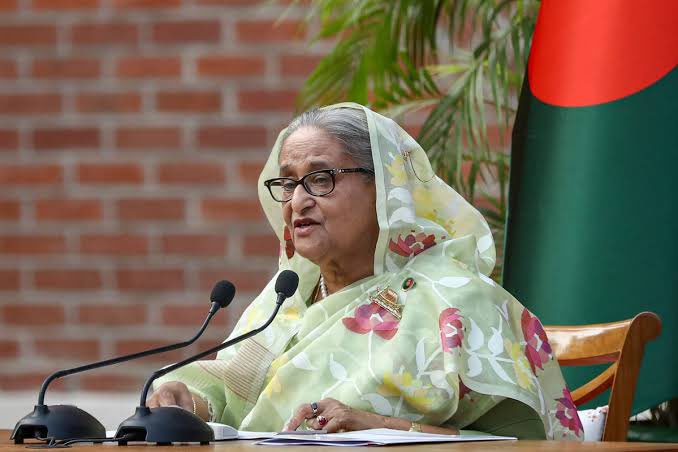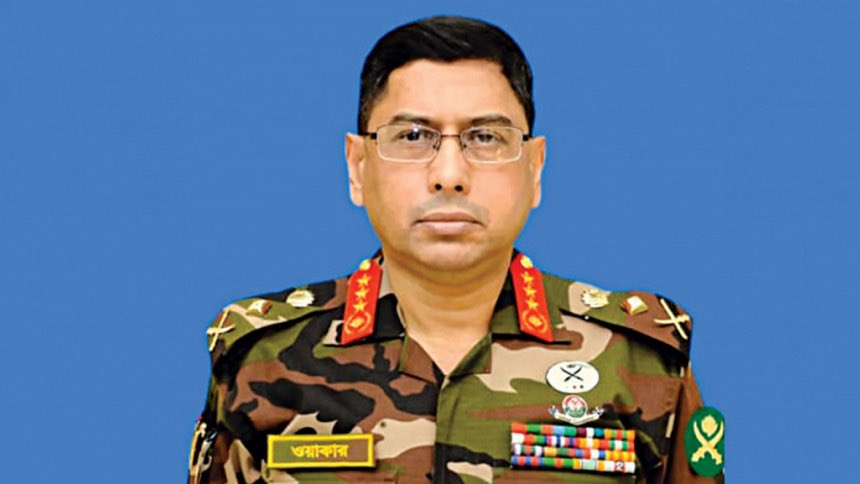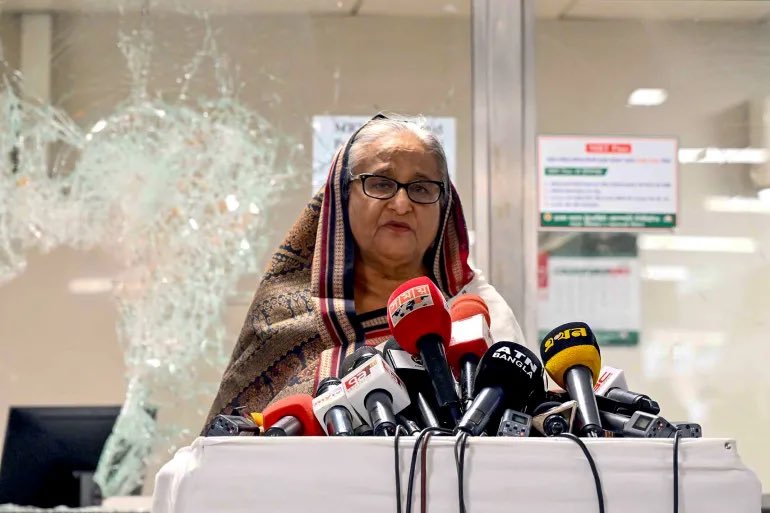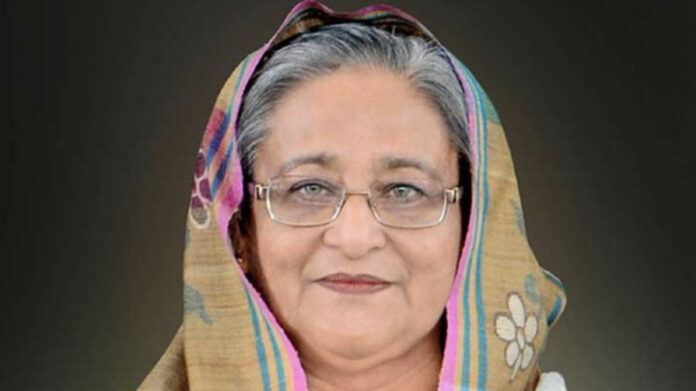Bangladesh’s Prime Minister Sheikh Hasina ended her 15-year rule on Monday by fleeing the country after weeks of deadly protests.

Since early July, Hasina has tried to stop protests against her government. However, after a violent day on Sunday when nearly 100 people died, she fled the country.
On Monday, Bangladesh’s army chief Waker-Uz-Zaman announced on TV that Hasina had resigned and the military would set up an interim government.
“The country has suffered a lot, the economy has been hit, and many people have been killed. It is time to stop the violence. I hope after my speech, the situation will improve.” Waker said.

Hasina escaped the country by helicopter, according to a source close to her who spoke to AFP shortly after protesters had stormed her palace in Dhaka.
On Monday morning, excited crowds waved flags and some danced on top of a tank in the streets before hundreds of people broke through the gates of Hasina’s official residence.
Before the protesters had stormed the compound, Hasina’s son urged the country’s security forces to block any takeover.
“Your duty is to keep our people safe and our country safe and to uphold the constitution,” her son, US-based Sajeeb Wazed Joy, said in a post on Facebook.
“It means don’t allow any unelected government to come into power for one minute; it is your duty.”
READ ALSO:KAMALA HARRIS SET TO ANNOUNCE VP PICK BEFORE US BATTLEGROUND CAMPAIGN
Security Forces Uphold Hasina’s Government Amid Escalating Unrest
Security forces had supported Hasina’s government throughout the unrest, which began last month against civil service job quotas and then escalated into wider calls for her to stand down.

On Sunday, at least 94 people were killed, including 14 police officers, making it the deadliest day of the unrest.
Protesters and government supporters nationwide battled each other with sticks and knives, and security forces opened fire.
The violence on that day brought the total number of people killed since the protests started in early July to at least 300, according to an AFP count from police, government officials, and hospital doctors.
In January 2007, the military declared a state of emergency due to widespread political unrest and set up a military-backed caretaker government that lasted for two years.
Hasina then ruled Bangladesh from 2009 and won her fourth consecutive election in January after a vote without genuine opposition.
Her government was accused by rights groups of misusing state institutions to strengthen its grip on power. Additionally, it was charged with stamping out dissent through unlawful killings of opposition activists.
Demonstrations began over the reintroduction of a quota scheme that reserved more than half of all government jobs for certain groups.
The protests escalated despite the scheme having been scaled back by Bangladesh’s top court.
Soldiers and police with armored vehicles in Dhaka had barricaded routes to Hasina’s office with barbed wire on Monday morning, but vast crowds flooded the streets, tearing down barriers.
